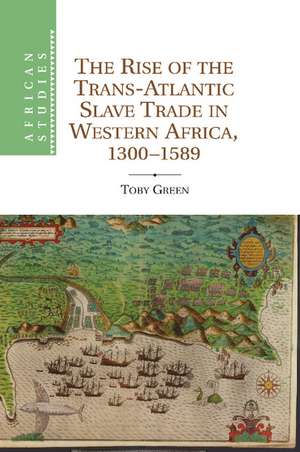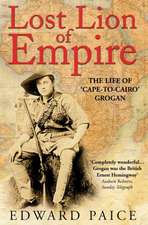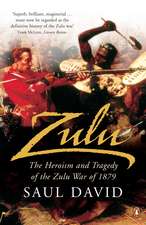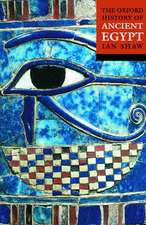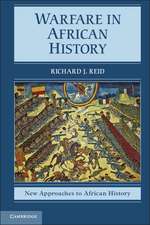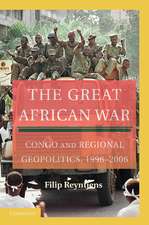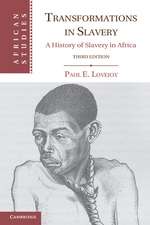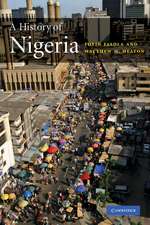The Rise of the Trans-Atlantic Slave Trade in Western Africa, 1300–1589: African Studies
Autor Toby Greenen Limba Engleză Paperback – 19 mar 2014
| Toate formatele și edițiile | Preț | Express |
|---|---|---|
| Paperback (1) | 273.50 lei 6-8 săpt. | |
| Cambridge University Press – 19 mar 2014 | 273.50 lei 6-8 săpt. | |
| Hardback (1) | 758.35 lei 6-8 săpt. | |
| Cambridge University Press – 9 oct 2011 | 758.35 lei 6-8 săpt. |
Din seria African Studies
-
 Preț: 177.35 lei
Preț: 177.35 lei - 9%
 Preț: 731.13 lei
Preț: 731.13 lei -
 Preț: 275.85 lei
Preț: 275.85 lei -
 Preț: 178.45 lei
Preț: 178.45 lei -
 Preț: 231.24 lei
Preț: 231.24 lei -
 Preț: 204.11 lei
Preț: 204.11 lei -
 Preț: 202.11 lei
Preț: 202.11 lei -
 Preț: 223.29 lei
Preț: 223.29 lei -
 Preț: 310.62 lei
Preț: 310.62 lei -
 Preț: 342.31 lei
Preț: 342.31 lei - 11%
 Preț: 696.80 lei
Preț: 696.80 lei -
 Preț: 184.93 lei
Preț: 184.93 lei -
 Preț: 238.11 lei
Preț: 238.11 lei -
 Preț: 177.35 lei
Preț: 177.35 lei -
 Preț: 208.25 lei
Preț: 208.25 lei -
 Preț: 299.45 lei
Preț: 299.45 lei - 23%
 Preț: 326.14 lei
Preț: 326.14 lei - 15%
 Preț: 459.92 lei
Preț: 459.92 lei - 15%
 Preț: 295.49 lei
Preț: 295.49 lei - 13%
 Preț: 296.11 lei
Preț: 296.11 lei - 18%
 Preț: 1007.12 lei
Preț: 1007.12 lei - 18%
 Preț: 1050.78 lei
Preț: 1050.78 lei -
 Preț: 446.37 lei
Preț: 446.37 lei - 12%
 Preț: 301.75 lei
Preț: 301.75 lei - 25%
 Preț: 770.26 lei
Preț: 770.26 lei -
 Preț: 110.05 lei
Preț: 110.05 lei - 18%
 Preț: 1106.02 lei
Preț: 1106.02 lei -
 Preț: 480.24 lei
Preț: 480.24 lei - 18%
 Preț: 1003.30 lei
Preț: 1003.30 lei - 18%
 Preț: 182.41 lei
Preț: 182.41 lei -
 Preț: 489.10 lei
Preț: 489.10 lei -
 Preț: 477.72 lei
Preț: 477.72 lei - 25%
 Preț: 853.03 lei
Preț: 853.03 lei - 18%
 Preț: 179.93 lei
Preț: 179.93 lei - 26%
 Preț: 762.16 lei
Preț: 762.16 lei - 18%
 Preț: 710.05 lei
Preț: 710.05 lei -
 Preț: 321.93 lei
Preț: 321.93 lei -
 Preț: 486.80 lei
Preț: 486.80 lei - 13%
 Preț: 311.00 lei
Preț: 311.00 lei - 18%
 Preț: 995.09 lei
Preț: 995.09 lei - 18%
 Preț: 703.45 lei
Preț: 703.45 lei -
 Preț: 322.12 lei
Preț: 322.12 lei -
 Preț: 287.48 lei
Preț: 287.48 lei -
 Preț: 286.69 lei
Preț: 286.69 lei
Preț: 273.50 lei
Nou
Puncte Express: 410
Preț estimativ în valută:
52.33€ • 54.53$ • 43.33£
52.33€ • 54.53$ • 43.33£
Carte tipărită la comandă
Livrare economică 03-17 aprilie
Preluare comenzi: 021 569.72.76
Specificații
ISBN-13: 9781107634718
ISBN-10: 1107634717
Pagini: 366
Ilustrații: 4 maps 2 tables
Dimensiuni: 152 x 229 x 21 mm
Greutate: 0.54 kg
Editura: Cambridge University Press
Colecția Cambridge University Press
Seria African Studies
Locul publicării:New York, United States
ISBN-10: 1107634717
Pagini: 366
Ilustrații: 4 maps 2 tables
Dimensiuni: 152 x 229 x 21 mm
Greutate: 0.54 kg
Editura: Cambridge University Press
Colecția Cambridge University Press
Seria African Studies
Locul publicării:New York, United States
Cuprins
Part I. The Development of an Atlantic Creole Culture in Western Africa, c.1300–1500: 1. Culture, trade, and diaspora in pre-Atlantic West Africa; 2. The formation of early Atlantic societies in Senegambia and Upper Guinea; 3. The settlement of Cabo Verde and early signs of Creolization in Western Africa; 4. The new Christian diaspora in Cabo Verde and the rise of a Creole culture in Western Africa; 5. The new Christian/Kassanké alliance and the consolidation of Creolization; Part II. Creolization and Slavery: Western Africa and the Pan-Atlantic, c.1492–1589: 6. The early trans-Atlantic slave trade from Western Africa; 7. Trading ideas and trading people: the boom in the contraband trade from Western Africa, c.1550–80; 8. Cycles of war and trade in the African Atlantic, c.1550–80; 9. Creole societies and the pan-Atlantic in late sixteenth-century Western Africa and America; Part III. Conclusion: 10. Lineages, societies, and the slave trade in Western Africa to 1589.
Recenzii
'Many current scholars lay claim to a transnational and cross-cultural 'Atlantic' history but very few have brought together the detail, scope, and vision of Toby Green. This remarkable book, focusing on Cabo Verde, Senegambia, and Upper Guinea, reveals how Iberian imperial authorities, a New Christian/Crypto-Jewish diaspora, and African economic and political agents combined to produce a wide-ranging early modern order of commerce and cultural identity around the violence of the slave trade.' Ralph Austen, University of Chicago
'… original and thoroughly researched … Green recasts our understanding of the early years of Africa's engagement with Atlantic merchants. He 'Africanizes' Atlantic history by showing that a cultural framework established in Africa before the Portuguese 'discoveries' … influenced the nature of African-European exchanges for more than a century … Green crafts a 'culturally centered approach', which stands in contrast to quantitative approaches popular in much recent scholarship. He also shows that a widely held view that a region known as Upper Guinea was relatively unimportant in the early years of Atlantic exchange is incorrect … Well written and well argued, Green's is a story that had to be told.' Walter Hawthorne, Michigan State University, and author of From Africa to Brazil: Culture, Identity, and an Atlantic Slave Trade, 1600–1830
'Green's book is learned and wide-ranging. It is also deeply humane and marked by an imaginative empathy of rare quality. The result is one of the best and most rewarding works I have read on the trans-Atlantic slave trade. This is a major contribution to West African and Atlantic history and marks Green as a scholar to watch.' T. C. McCaskie, School of Oriental and African Studies, University of London
'This book offers a real window [into] the history of the diversity of West African societies before the seventeenth century. The protagonists are slaves, women, Jews, Mestizos, Capeverdeans and African merchants - all of whom contributed to new identities. The space of reflection opened by T. Green is rich in ways of thinking about the formation of West African societies, the first Atlantic exchanges and the configuration of new identities in American space.' António de Almeida Mendes, translated from Annales: Histoire, Sciences Sociales
'This book is a transnational history par excellence, with multiple places, communities, regions, peoples, cultures, identities, and overlapping agendas in simultaneous dialogues. It is written with reflection, compassion, and good judgement. Green tackles the complications, the beauty, and the ugliness of the human condition without making excuses for the actions of men whose deeds, travails, and pragmatism gave birth to and sustained the transatlantic slave trade for more than 400 years.' Akin Ogundiran, English Historical Review
'Green's book is a welcome and valuable contribution to Atlantic history and fills a lacuna with regard to the early period of its evolution. It will no doubt enliven and encourage the debate on West Africa's position in the trans-Atlantic context and on the agency of different social groups in the making of Afro-Atlantic cultures based on the ignominious trade in humans.' Philip Jan Havik, Journal of African History
'[This book] makes a significant contribution to historical understanding of the beginnings of European trade in Africa and places the Cape Verde islands in their rightful place at the centre of this important story. It will interest scholars of the Atlantic World and a general audience interested in European expansion and maritime trade.' Journal of World History
'A study of an impressive wealth of material.' translated from Cahiers des Etudes Africaines
'… original and thoroughly researched … Green recasts our understanding of the early years of Africa's engagement with Atlantic merchants. He 'Africanizes' Atlantic history by showing that a cultural framework established in Africa before the Portuguese 'discoveries' … influenced the nature of African-European exchanges for more than a century … Green crafts a 'culturally centered approach', which stands in contrast to quantitative approaches popular in much recent scholarship. He also shows that a widely held view that a region known as Upper Guinea was relatively unimportant in the early years of Atlantic exchange is incorrect … Well written and well argued, Green's is a story that had to be told.' Walter Hawthorne, Michigan State University, and author of From Africa to Brazil: Culture, Identity, and an Atlantic Slave Trade, 1600–1830
'Green's book is learned and wide-ranging. It is also deeply humane and marked by an imaginative empathy of rare quality. The result is one of the best and most rewarding works I have read on the trans-Atlantic slave trade. This is a major contribution to West African and Atlantic history and marks Green as a scholar to watch.' T. C. McCaskie, School of Oriental and African Studies, University of London
'This book offers a real window [into] the history of the diversity of West African societies before the seventeenth century. The protagonists are slaves, women, Jews, Mestizos, Capeverdeans and African merchants - all of whom contributed to new identities. The space of reflection opened by T. Green is rich in ways of thinking about the formation of West African societies, the first Atlantic exchanges and the configuration of new identities in American space.' António de Almeida Mendes, translated from Annales: Histoire, Sciences Sociales
'This book is a transnational history par excellence, with multiple places, communities, regions, peoples, cultures, identities, and overlapping agendas in simultaneous dialogues. It is written with reflection, compassion, and good judgement. Green tackles the complications, the beauty, and the ugliness of the human condition without making excuses for the actions of men whose deeds, travails, and pragmatism gave birth to and sustained the transatlantic slave trade for more than 400 years.' Akin Ogundiran, English Historical Review
'Green's book is a welcome and valuable contribution to Atlantic history and fills a lacuna with regard to the early period of its evolution. It will no doubt enliven and encourage the debate on West Africa's position in the trans-Atlantic context and on the agency of different social groups in the making of Afro-Atlantic cultures based on the ignominious trade in humans.' Philip Jan Havik, Journal of African History
'[This book] makes a significant contribution to historical understanding of the beginnings of European trade in Africa and places the Cape Verde islands in their rightful place at the centre of this important story. It will interest scholars of the Atlantic World and a general audience interested in European expansion and maritime trade.' Journal of World History
'A study of an impressive wealth of material.' translated from Cahiers des Etudes Africaines
Descriere
Toby Green describes the rise of the trans-Atlantic slave trade in the aftermath of the Spanish conquest.
